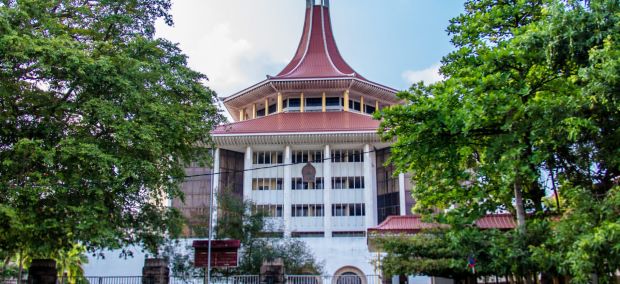COLOMBO — Sri Lanka’s main opposition party the Samagi Jana Balawegaya (SJB) on Monday (22) filed a petition in the Supreme Court challenging the proposed Anti-Terrorism bill, which the party claims is being introduced in an election year to repress opposition parties.
The petition was filed by SJB General Secretary Ranjith Madduma Bandara, who deemed the bill a threat to Sri Lanka’s opposition parties and to democracy itself.
“This bill is being presented not at a time of terrorism prevailing in the country but during an election period,” Bandara told reporters, noting that the bill has not defined nor analyzed what a terrorist is.
“Anyone can be arrested,” he claimed, adding, “We think this is being done in the face of an election to repress political parties and stifle democracy of this country. That is why we filed a case against this, for democracy.”
The MP said both the anti-terrorism bill and the controversial Online Safety Bill are being introduced in an election year to quell democracy.
Sri Lanka’s proposed new counter-terror law as well as the Online Safety Bill has drawn criticism from various quarters including opposition parties and civil society. Most recently, the Centre for Policy Alternatives (CPA) said the introduction of the two bills and other measures are some examples where Sri Lanka’s space for dissent is “fast shrinking with fears of increasing authoritarian and militarised trends that erode the rule of law and threaten Sri Lanka’s fragile peace,” and urged the government to withdraw the bills and initiate a process at genuine confidence-building measures and reform that addresses the multiple challenges confronting Sri Lanka.
Human rights activists both local and international have repeatedly called for the repeal of the existing Prevention of Terrorism Act (PTA), which critics have called draconian. The proposed new Anti-Terrorism Act which was supposed to replace the PTA has also been the target of much criticism both locally and internationally.
The Human Rights Watch (HRW) said in April 2023 that the act, if passed, would empower the authorities to systematically violate fundamental human rights.
The Anti-Terrorism Bill, which was published on March 22, 2023, is intended to replace the “notorious” PTA, HRW said in its statement, which led to “widespread torture and arbitrary detentions since its introduction in 1979”.
-economynext.com



Comments are closed, but trackbacks and pingbacks are open.